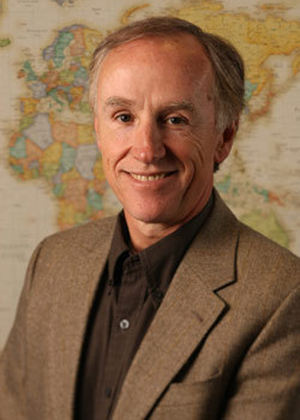 David Cortright
David Cortright
The University of Notre Dame’s Kroc Institute for International Peace Studies has launched a new policy initiative to examine the complex ethical, strategic and legal implications of the use of unmanned aerial vehicles — commonly called “drones” — for combat purposes, and to foster the development of internationally accepted rules for how these weapons should be used.
In the past few years, the U.S. military and the CIA have secretly launched hundreds of drone strikes in Afghanistan, Pakistan, Yemen, Somalia and possibly other countries, says David Cortright, director of policy studies at the Kroc Institute. Drone warfare has become a centerpiece of the U.S. foreign policy agenda, yet there has been little systematic effort to look at the implications of this “remote-control” combat or to determine if and when it is ethically and legally justified.
The practices now being developed by the U.S. set a precedent for how other countries will use these weapons, Cortright says.
“More than 70 countries now have or are acquiring drone technology — for surveillance and for armed strikes,” he says. “We can anticipate a day in the near future when every country in the world can use drones as a weapons system. It’s in the interest of the United States to ensure that these weapons comply with the laws of armed conflict and with widely accepted ethical and human rights standards.”
With support from Humanity United, the Kroc Institute is organizing an international conference on drone warfare in Chicago in March that will include prominent ethicists, international legal scholars, human rights specialists and security policy experts. The conference, “The Ethical, Strategic and Legal Implications of Drone Warfare,” will involve both supporters and critics of U.S. drone policy and will engage current and former U.S. and United Nations officials.
“The pursuit of sustainable peace among nations, and within our own, depends on weighing carefully the often competing ethical, legal and security claims that shape U.S. policy,” says R. Scott Appleby, the John M. Regan Jr. Director of the Kroc Institute. “I anticipate a lively and illuminating debate in Chicago, and it could not come at a better time for our nation.”
Military leaders participating in the conference will include Gen. Michael Hayden (retired, U.S. Air Force), former director of the CIA; and Gen. James Cartwright (retired, U.S. Marine Corps), former vice chairman of the Joint Chiefs of Staff and past commander of Strategic Command. Policymakers and academics at the conference will include Christof Heyns, U.N. Special Rapporteur on extrajudicial, summary or arbitrary executions and former dean of the University of Pretoria Faculty of Law; a number of Kroc Institute and other Notre Dame faculty; and other leading thinkers on ethics and the use of force, counterterrorism, international law, human rights and humanitarian law.
Among the questions that will be considered:
- Does the ability to strike distant targets without risking the lives of their soldiers increase the propensity of political leaders to use lethal force?
- Is targeted killing an appropriate and effective strategy for preventing violent extremism?
- Are drone strikes outside of a recognized war zone legal under international law?
- Should more objective and transparent legal standards be established for designating targets and approving strikes?
- What mechanisms exist for ensuring that those who operate these systems, including CIA officers and private contractors, are legally accountable?
Following the conference, the Kroc Institute will produce and distribute policy briefs that summarize the key findings and outline policy options and recommendations for decision-makers. The conference panelists will contribute to a book manuscript on drone warfare, edited by Cortright. While the conference is not open to the public, the Kroc Institute is partnering with the Chicago Council on Global Affairs to host a public event in Chicago on March 21 (Thursday). The program is called “Drone Warfare: The Unknown Costs,” and will feature Gen. James Cartwright interviewed by Michael Desch, professor and chairman of the Department of Political Science at Notre Dame. For more information and to register, visit the Chicago Council’s events page.
Contact: David Cortright, 574-631-8536, dcortrig@nd.edu